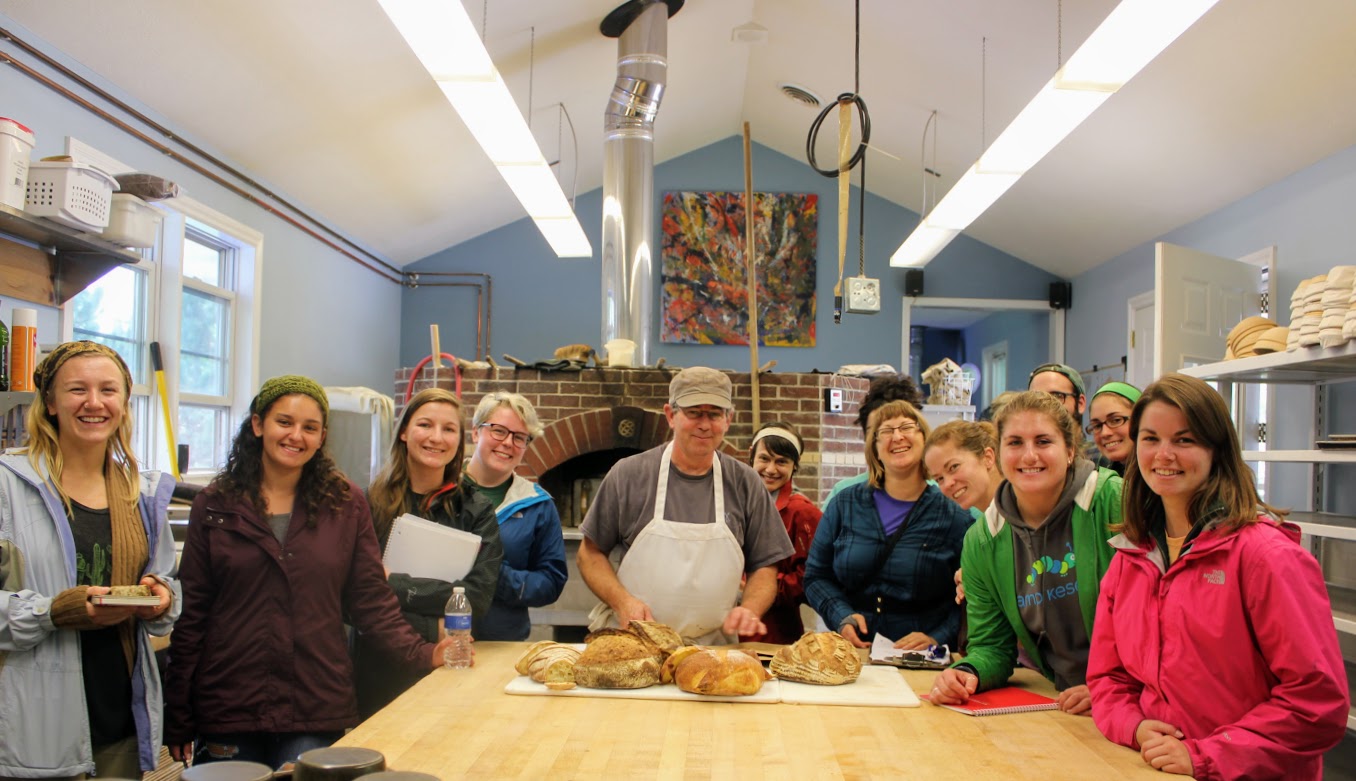The objective of the Sustainable Agriculture & Food Systems minor (SAFS) is to foster active learning about the ecological, social and economic aspects of food production through exploring diverse perspectives and experiential learning. The design of the SAFS minor reflects the desire to provide broad and substantial scientific context to the concept of sustainability in agriculture and food systems issues. We aim to foster enthusiastic academic curiosity that leads to life-long learning and engagement with these topics.

Recognizing sustainability is pertinent to all future professions, students from all academic backgrounds and interests are encouraged to consider SAFS. Students from over 20 majors at MSU participate in the minor, ranging from future farmers, food business industry management, environmental engineering, plant biology, policy, nutrition, and social work. SAFS provides the opportunity to learn and work across many boundaries, achieving a more complete and balanced understanding of worldviews while developing "hard"and "soft" skills relevant in any future career path.
Wondering where SAFS students go? Check out more in the SAFS Alumni Report. For more information on the SAFS program, contact the advisor, Julie Cotton.
Benefits of SAFS
Travel Grants
We also offer travel grant that can help you get to a conference or professional meeting in a field of interest to you. These opportunities will give you insight into the topics relevant to particular careers, and can help you find mentorship and opportunities during your time at MSU and beyond.
Networking and Career Advising
The SAFS Advisor maintains community networks both locally and nationally that are blazing the pathway for careers in the field of sustainable agriculture and food systems. Individualized educational plans and support in job searches is core to our advising goals.
The AGROECO listserv, which provides job, internship, and academic postings, and events related to SAFS with a focus on Michigan opportunities. If you are interested in seeing what kind of jobs may be in your future, finding an internship or graduate program opportunity, exploring research opportunities, or attending lectures on campus that relate to your interests, be sure to sign up!
Interdisciplinary Perspectives
SAFS offers many unique opportunities to develop a career pathway, including networking with other students in complementary academic programs. We attract students from up to 20 different majors in our classes, so students have the opportunity to gain perspective and networking opportunities with other future professionals beyond their current academic peer group through engagement in the SAFS minor.
Contact the SAFS advisor to learn more about the minor or to apply for a travel scholarship.
History
The SAFS program is the culmination of more than 10 years of conversation and collaboration between Michigan State University faculty, staff and students passionate about sustainable agriculture and food systems.
The Beginning
In 2008, the SAFS and EFFS education program proposal was awarded a Quality Fund Grant by the Provost to "enhance academic quality and demonstrably benefit students at MSU". The academic programs for the Sustainable Agriculture and Food Systems (SAFS) undergraduate specialization (now a minor) and Ecological Food and Farming Systems (EFFS) graduate specialization were developed over the 2008-2009 academic year, and approved in Spring of 2009. The specializations were initiated in the fall of 2009.
The SAFS program is provided with ongoing annual financial support that is directed towards student travel, marketing and program support needs, and faculty development opportunities.
Though the departmental home for the programs is in the Department of Plant, Soil and Microbial Sciences, courses developed for the program are interdisciplinary and are cross-listed with several other departments including Horticulture, Animal Sciences, and Community Sustainability. Electives include options from eight departments in the College of Agriculture and Natural Resources, the College of Social Sciences, and the Residential College of Arts and Humanities.
From Specialization to Minor
The SAFS program transitioned from a specialization to a minor in 2014-2015. The concept and design of the SAFS minor now reflects the desire to provide context, learning outcomes and personal development that lead to life-long learning about sustainable agriculture and food systems through critical thought and experiential learning, including the new field course that gets students out of the classroom and into the world.
Affiliated Faculty
The following faculty teach, research, or otherwise contribute to the Sustainable Agriculture and Food Systems mission at MSU.
Animal Science
Plant, Soil & Microbial Sciences
- Julie Cotton, M.S. - SAFS Undergraduate Instructor, Coordinator & Advisor
- Dr. Eunice Foster - SAFS Steering Committee Member
- Dr. Karen Renner - SAFS Steering Committee Member
- Dr. G. Philip Robertson
- Dr. Sieglinde Snapp
Entomology
Geography
Horticulture
Agricultural, Food, and Resource Economics
Community, Agriculture, Recreation & Resource Studies
Sociology
Human Nutrition
- Dr. Katherine Alaimo - Director and Chair of SAFS Steering Committee Member



 Print
Print Email
Email